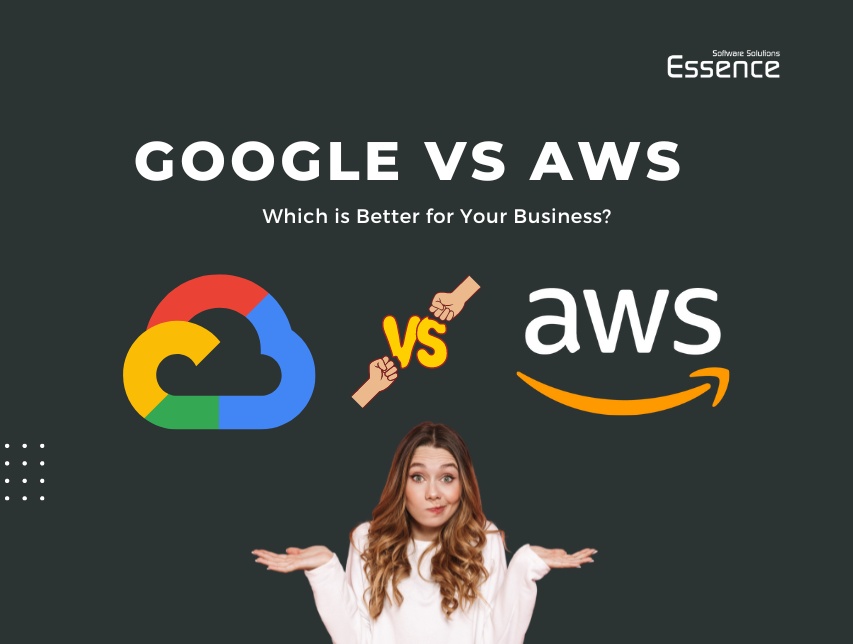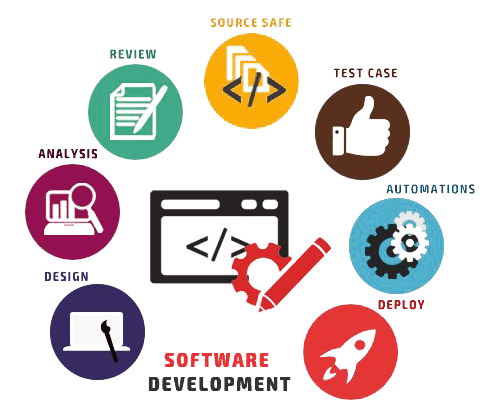
AWS or Google Cloud: Which is Better for Your Business?
In the fast-paced world of cloud computing, Amazon Web Services (AWS) and Google Cloud Platform (GCP) have emerged as two prominent contenders, each offering an array of powerful tools and services. As businesses increasingly migrate their operations to the cloud, the decision of which cloud provider to choose becomes crucial in shaping the future of their digital infrastructure.
When considering cloud computing, many questions arise about which cloud services best suit business requirements. Since cloud computing is a relatively new field and several cloud giants provide services for a price, businesses often search for which provider best meets their needs. This blog will compare AWS and GCP on several parameters to help you make an informed decision.
Market Shares
In the cloud computing market, AWS, GCP, and Microsoft Azure are the leading players. As of January 2024, AWS holds 41.5% of the cloud computing market share, followed by Azure at 23%, and GCP at about 10%. These three companies account for about 66% of the worldwide market. AWS’s significant market share reflects its extensive service offerings, reliability, and customer trust.
Services
Compute
AWS offers a comprehensive suite of compute services, including Amazon Elastic Compute Cloud (EC2), Amazon Lightsail, and Amazon EC2 Spot Instances for virtual machines, Amazon Elastic Kubernetes Service (EKS) for containers, and AWS Lambda for serverless computing.
GCP provides Compute Engine for virtual machines, Tau VMs, Cloud GPUs, Google Kubernetes Engine (GKE) for containers, and App Engine for serverless computing. Both platforms offer robust compute options, but AWS has a broader range of services.
Storage
AWS features Amazon Simple Storage Service (S3), Elastic Block Store (EBS), Elastic File System (EFS), Amazon Glacier for archival storage, and AWS Storage Gateway.
GCP includes Google Cloud Storage, Cloud SQL, Cloud Spanner, Cloud Bigtable, and Cloud Filestore. Both providers offer scalable and secure storage solutions, but AWS’s extensive service range gives it an edge.
Databases
AWS offers a variety of database services such as Amazon Relational Database Service (RDS), DynamoDB, ElastiCache, Neptune, AI Statistics And Trends and Redshift.
GCP provides Cloud Firestore, Firebase Realtime Database, Memorystore, and Cloud Datastore. AWS’s extensive database options cater to diverse needs, from relational to NoSQL databases.
Networking
AWS provides networking services like Amazon Virtual Private Cloud (VPC), Elastic Load Balancer (ELB), Route 53, CloudFront, and AWS Direct Connect.
GCP offers Virtual Private Cloud, Load Balancing, Cloud CDN, Cloud DNS, and Cloud Interconnect. Both platforms offer robust networking capabilities, but AWS’s mature ecosystem provides more comprehensive solutions.
Big Data and Analytics
AWS includes Amazon EMR, Athena, Kinesis, Redshift, and AWS Glue.
GCP features BigQuery, Cloud Dataflow, Cloud Pub/Sub, and Cloud Dataproc. AWS’s scalability and disaster management capabilities AI Statistics And Trends make it a strong choice for big data analytics.
Machine Learning and AI
AWS provides Amazon SageMaker, Rekognition, Comprehend, Lex, and Polly.
GCP offers AutoML, Cloud Vision API, Cloud Translation API, Cloud Speech-to-Text, and Cloud Natural Language API. Both platforms are leaders in AI and machine learning, with AWS having a slight edge in service variety.
Regions and Zones
AWS As of now, AWS has 105 availability zones across 33 geographic regions worldwide, with plans for more. This extensive network ensures high availability, low latency, and reliability for global businesses.
GCP has 29 regions and 88 zones, providing a substantial presence but not as extensive as AWS. However, GCP is continuously expanding its infrastructure.
Pricing
AWS offers a pay-as-you-go model with several pricing options, including on-demand, reserved instances, and savings plans. AWS also provides a free tier for 12 months with limited usage.
GCP offers a pay-as-you-go model and committed use contracts. GCP’s pricing can be more cost-effective for sustained use, and it provides a $300 free credit for new users.
Comparing instance prices with similar specifications (RAM, vCPUs) using pricing calculators from both platforms is crucial for accurate cost analysis. Each provider has strengths depending on specific business needs and usage patterns.
Free Trials
AWS provides a 12-month free tier, including 750 hours of EC2 usage per month and other services like S3 and DynamoDB.
GCP offers a $300 free credit for new users, allowing them to try a wide range of services. GCP’s trial period is more flexible in exploring various services without upfront commitments.
Cloud Security
AWS provides robust security measures, including data locality, protection, and confidentiality. It offers the largest ecosystem of security partners, secure scaling, visibility control, and automated risk reduction.
GCP emphasizes digital sovereignty, threat detection, and response. It offers the Chronicle Security Operations suite and Mandiant Digital Risk Protection. Both providers prioritize security, but AWS’s extensive partner ecosystem and automated security features give it an edge.
Future Demand and Scope
AWS longevity in the market and extensive service offerings ensure a bright future. It remains a leader in cloud computing, continually AI Statistics And Trends innovating and expanding its services.
GCP, while younger than AWS, benefits from Google’s ecosystem of applications like Gmail, Google Photos, and Google Drive. GCP continues to expand its services and AI Statistics And Trends optimize its offerings, making it a strong contender in the cloud market.
Conclusion
Elevate your software development with the perfect cloud solution! Contact Essence Software, the best software development company, for expert guidance on AWS and Google Cloud. Let’s unlock your business’s full potential together. Start your cloud journey today!
Both AWS and GCP have their strengths and can significantly benefit businesses. Evaluating your specific requirements and conducting thorough cost-benefit analyses will help determine the best cloud provider for your business.
FAQ
AWS offers a broader range of services, including compute, storage, databases, and machine learning, while Google Cloud excels in integrating with Google’s ecosystem and offers competitive pricing and strong AI capabilities.
Both offer pay-as-you-go models. AWS provides on-demand, reserved instances, savings plans, and a 12-month free tier. Google Cloud offers a $300 free credit for new users and committed use contracts, often more cost-effective for sustained use.
AWS includes services like EMR, Athena, and Redshift, known for scalability and disaster management. Google Cloud features BigQuery and Dataflow, excelling in serverless analytics and Google integration.
AWS offers robust security with data protection, extensive security partners, and automated risk reduction. Google Cloud focuses on digital sovereignty, threat detection, and response with tools like Chronicle and Mandiant.
AWS’s extensive infrastructure and continuous innovation make it a strong choice for scalability. Google Cloud, benefiting from Google’s ecosystem, is also expanding rapidly, making it a viable option. The best choice depends on specific business needs and goals.










